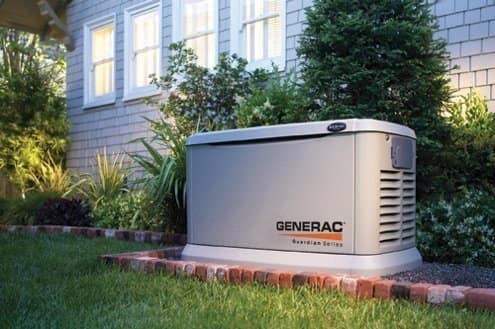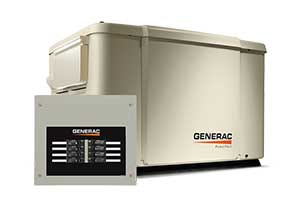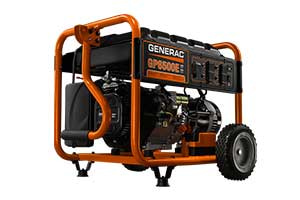Nothing gives you more security than knowing you have a backup generator sitting and waiting in your garage for those unforeseen emergencies.
If you’re in the market to buy a generator in Jacksonville, we have a list of things you should know.
As with every other outdoor power equipment, home generators come with an array of safety concerns. During Hurricane Katrina, it was reported that more than fifty cases of carbon monoxide poisoning occurred when people ran their gas-powered generators inside a closed area such as a home or garage. A safe distance is at least ten feet from your home and never on a porch or near an open window.
It’s common sense to know you shouldn’t play with water around anything electrical or put your hands or feet near the blades of a lawnmower, so it’s just as important to know you should never run a generator in a closed area.
Generators emit the same carbon monoxide that kill people who leave their cars running in a garage. The colorless and odorless gas is very deadly and is known as the silent killer. Contrary to the popular myth, keeping your garage door open does not protect you from the toxic fumes.
So, knowing how important it is to keep a running generator away from your home, where should you run a generator.
At least ten feet away from your house, and always point the exhaust away from doors and windows. It’s also a good idea to install a carbon monoxide (CO) detector in your home. Make sure you purchase a battery-operated or battery backup device so it will continue to protect you even when the power is off.
Here is a list of things you need to keep in mind when purchasing a backup generator:
What size to buy?
To determine the size (wattage), you’ll need to locate the wattage label on each of your major appliances. Most times, the label is inside the door or on the back of the appliance. Make a note of the wattage of each and include only those essential appliances that you would need to run if a power outage occurred. Add up all of the wattages and multiply that number by 1.5. This number will tell you the minimum wattage generator you’ll need.
Don’t forget the gas.
In a time of need, a generator is only as good as the readily available fuel. During a storm, the last thing you’ll want to do is make a run for gas. Remember when purchasing a generator to buy enough cans to fill to be prepared.
Typically a 5,500-watt generator will run about eight to nine hours on five gallons of gas. Planning and having several five-gallon cans filled with fuel waiting in reserve is crucial. Be sure to add a stabilizer to extend the shelf life of the gas. Generators should be stored dry or filled with stabilized fuel. All fuel should be replaced every six months. Our service techs recommend you empty all gasoline from the fuel tank and the carburetor after each use.
Do you have heavy-duty extension cords?
To keep the running generator far away from your home, you’ll need to invest in a 50 or 100-foot heavy-duty 12-gauge extension cord. Using cords less than 12-gauge can present a fire hazard and put undue stress on the motor.
Let it cool.
Fuel tanks on most generators are on the top of the engine to gravity feed gas to the carburetor. This setup can turn into a disaster if you fill a hot engine. Let the engine cool at least fifteen minutes before refueling and pour slowly and avoid filling the gas to the brim.
Keep it locked down.
Generators are the number one stolen item during a storm. Keep it hidden out of the way and tightly secured. For an extra layer of protection, bury a four-inch PVC drain pipe in the ground, fill it with concrete and add an eyebolt to the top and secure a chain and lock.
generac powerpack 6998
Custom home backup generator that meets your home backup needs.
Generac 6500E
An affordable solution for many different applications, with electric start.



